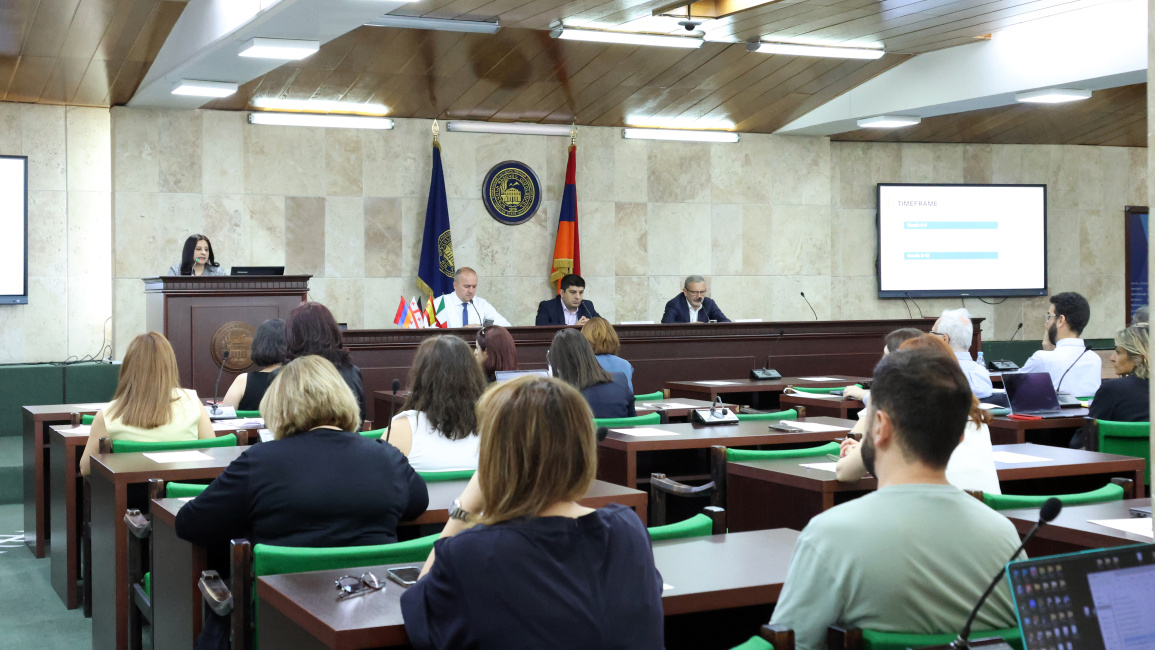Micro-credentials have recently been high on the agendas of various higher education stakeholders across the world. An increasing number of universities nowadays offer them in addition to their regular degree programs. Moreover, policy-making bodies have begun to revise their national policies, including university admission systems to recognise micro-credentials.
On 3 July and 5 July 2025, the project organized two workshops in Yerevan and Tbilisi, respectively. The workshop on July 3 was held at the YSU, during which the project participants, together with the wider academic community, discussed the main components of micro-credentials, their types, development and provision, learning outcomes and assigning QF level, digital solutions.
On 5 July, the Tbilisi workshop continued its discussions on quality assurance of micro-credentials, which was followed by the Roundtable on recognition of micro-credentials. The Head of ArmENIC presented what EHEA ministers responsible for higher educatiuon committed in the communiques, data on educational attainment with importance of micro-credentials for stakeholders and questions for the discussion: main steps towards effiecient and fair recognition of microcredentials, main tracks of recogntion depending on their typology, resposibility of public bodies in developing the ecosystem and provision of information and its main elements.
Thus, micro-credentials strengthen education as a public good and can play a significant role in realizing the right to quality education for individuals throughout life, especially in the context of lifelong learning, inclusivity, and adaptability in a changing world.





